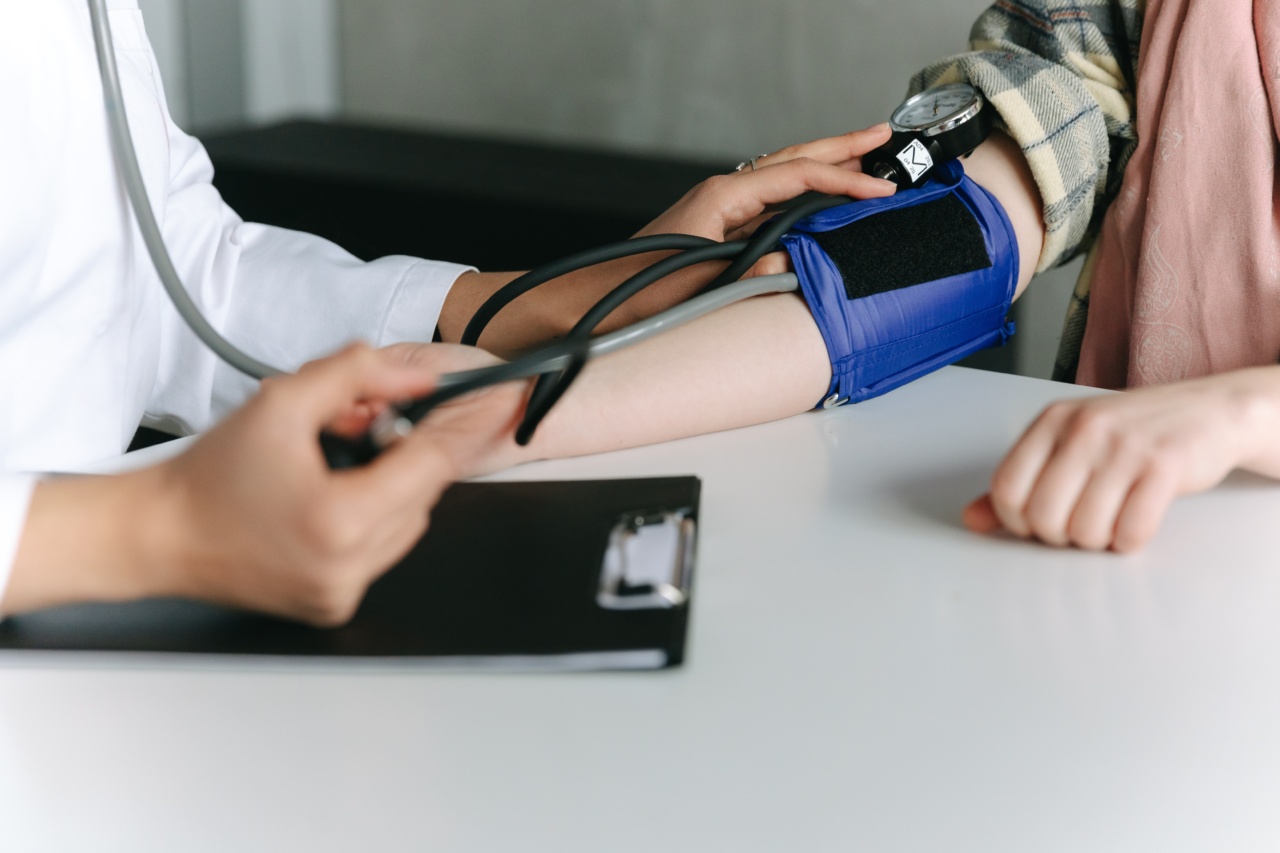High blood pressure, also known as hypertension, is a common medical condition affecting millions of people worldwide. It occurs when the force of blood against the walls of the arteries is consistently too high.
If left untreated, hypertension can lead to severe complications and even be life-threatening. However, by effectively managing and treating hypertension, lives can be saved.
Understanding Hypertension
Before delving into the importance of treating hypertension, it is essential to understand what exactly it is and how it affects the body. Blood pressure is measured using two numbers – systolic pressure over diastolic pressure.
A healthy blood pressure reading is generally around 120/80 mmHg.
Hypertension is diagnosed when a person consistently has blood pressure readings of 130/80 mmHg or higher. The condition is often asymptomatic, meaning that individuals may not experience any noticeable symptoms.
This is why hypertension is often referred to as the “silent killer.”.
The Dangers of Untreated Hypertension
While hypertension may not have obvious symptoms, it silently damages various organs and systems within the body.
Prolonged high blood pressure puts significant strain on the heart, arteries, kidneys, brain, and other vital organs, increasing the risk of many life-threatening conditions.
1. Increased Risk of Cardiovascular Disease
Hypertension is a major risk factor for cardiovascular diseases such as heart attack and stroke. High blood pressure damages the inner lining of arteries, leading to the development of plaques.
These plaques can rupture, causing blood clots that can trigger a heart attack or stroke.
2. Kidney Damage
The kidneys play a crucial role in maintaining the body’s overall health. Persistent hypertension can damage the tiny blood vessels in the kidneys, impairing their ability to filter waste from the blood.
Over time, this can lead to kidney failure and the need for dialysis or a kidney transplant.
3. Vision Problems
Hypertension can cause damage to the blood vessels in the eyes, leading to various vision problems or even vision loss. Conditions such as hypertensive retinopathy and optic nerve damage can result from uncontrolled hypertension.
4. Increased Risk of Dementia
Studies have shown a potential link between hypertension and an increased risk of developing dementia, including Alzheimer’s disease.
Uncontrolled high blood pressure can damage the blood vessels in the brain and disrupt its normal functioning, contributing to cognitive decline.
5. Complications during Pregnancy
Hypertension during pregnancy, known as gestational hypertension, can have severe consequences for both the mother and the baby.
It increases the risk of preeclampsia, a condition characterized by high blood pressure and damage to organs such as the liver and kidneys. Preeclampsia can lead to premature birth, low birth weight, and other complications.
Treating Hypertension to Save Lives
Given the numerous dangers of untreated hypertension, it is crucial to focus on treatment, management, and lifestyle modifications to prevent complications and save lives.
1. Lifestyle Changes
One of the primary approaches to treating hypertension is making lifestyle modifications. These changes can have a significant impact on reducing blood pressure levels and improving overall health:.
a) Healthy Diet: Adopting a diet rich in fruits, vegetables, whole grains, lean proteins, and low-fat dairy products while limiting sodium and saturated fats can help lower blood pressure.
b) Regular Exercise: Engaging in regular physical activity, such as brisk walking, cycling, or swimming, for at least 150 minutes per week can help control blood pressure and improve cardiovascular health.
c) Weight Management: Maintaining a healthy weight or losing excess weight through a balanced diet and exercise can significantly reduce blood pressure.
d) Limiting Alcohol Consumption: Excessive alcohol intake can raise blood pressure. Moderate consumption is defined as up to one drink per day for women and up to two drinks per day for men.
e) Quitting Smoking: Smoking can cause a temporary increase in blood pressure and damage blood vessels. Quitting smoking improves overall health and reduces the risk of cardiovascular complications.
2. Medications
Lifestyle changes may not always be sufficient to manage hypertension, especially in cases of moderate to severe high blood pressure. In such cases, healthcare professionals may prescribe medications to control blood pressure.
Commonly prescribed medications for hypertension include:.
a) Diuretics: Also known as water pills, diuretics help the body eliminate sodium and water, reducing the volume of blood and lowering blood pressure.
b) Angiotensin-Converting Enzyme (ACE) Inhibitors: ACE inhibitors help relax blood vessels by blocking the production of angiotensin II, a hormone that narrows blood vessels.
c) Angiotensin II Receptor Blockers (ARBs): ARBs work similarly to ACE inhibitors, blocking angiotensin II from binding to receptors and causing blood vessels to dilate.
d) Beta-Blockers: Beta-blockers reduce the heart rate and cardiac output, which helps lower blood pressure.
e) Calcium Channel Blockers: These medications relax and widen blood vessels by preventing calcium from entering the cells of the heart and blood vessels.
f) Other Medications: Depending on the individual’s specific condition, additional medications such as alpha-blockers, central agonists, and vasodilators may also be prescribed.
3. Regular Monitoring and Check-ups
People with hypertension need to regularly monitor their blood pressure and attend routine check-ups with their healthcare provider.
This helps ensure that blood pressure levels are well-managed and any necessary adjustments to medication or lifestyle can be made in a timely manner.
4. Stress Management
Stress is known to contribute to increased blood pressure levels. Adopting stress management techniques such as meditation, deep breathing exercises, yoga, or engaging in hobbies can help reduce stress and promote overall well-being.
Conclusion
Hypertension is a serious medical condition that can have devastating consequences if left untreated.
By taking proactive steps to manage and treat hypertension, such as adopting a healthy lifestyle, taking medications as prescribed, and attending regular check-ups, one can significantly reduce the risk of complications and potentially save lives. It is essential to raise awareness about the importance of managing hypertension and encourage individuals to take control of their blood pressure to lead longer and healthier lives.





























